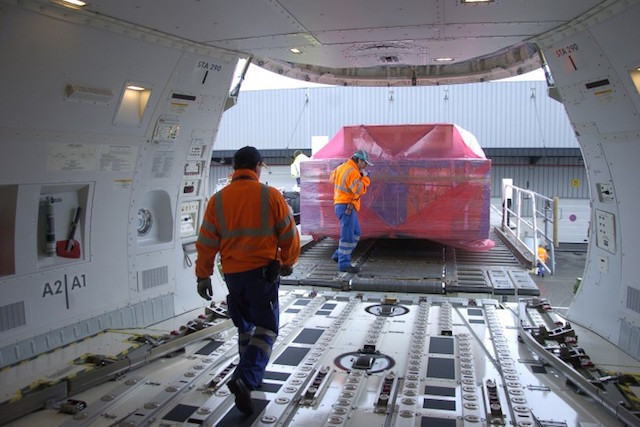Trucking service shortages, ocean freight capacity constraints, accidents like the Suez Canal blockage--these are some of the reasons why airfreight saw its services in higher demand during the second year of the pandemic. “Cargo services with volumes close to peak season production [continued] throughout the year,” the company said on Wednesday.
The past year remained an organisational challenge for the company, however: “Quarantine measures introduced in various countries, confinement of crew to hotels, lack of suitably qualified staff and infrastructure, especially in the USA, [were] all compounded by full warehouses and a shortage of trucking services.”
Nonetheless, with its fleet of 30 aircrafts--16 Boeing 747-400s and 14 Boeing 747-8s--Cargolux was able to complete 25,322 cycles, a 6.5% increase compared to 2020. With its total revenue of $4,429m over 2021--it was $3,171m in 2020--the company counted a net profit of $1,295m, up from , which was already a record year for the company.
Earnings before interest and taxes in 2021 reached $1,718m (from $991m in 2020).
Cargolux in its annual report also announced that it had started using Sustainable Aviation Fuel (SAF), and that it intends to “actively contribute to developing new technologies for producing SAF by investing up to $100m over the coming years.” At the end of March 2022, as Lux-Airport announced its investments in e-Fuel producer Norsk e-Fuel, Cargolux to become a potential equity investor on the production site.
However, while the past years have yielded record annual results, the future remains uncertain, Cargolux explains. Citing the war in Ukraine, the closure of the Russian airspace to foreign airlines, and the soaring prices of fuel, the Luxembourg business says that “capacity is not expected to recover to pre-pandemic levels in the coming months.”
Cargolux, while headquartered in Luxembourg, serves 75 destinations worldwide and employs around 2,500 staff members globally. Despite its annual results, however, the airline loses one place in IATA's ranking of leading cargo carriers (based on scheduled international freight tonne-kilometres flown) and comes fifth.
